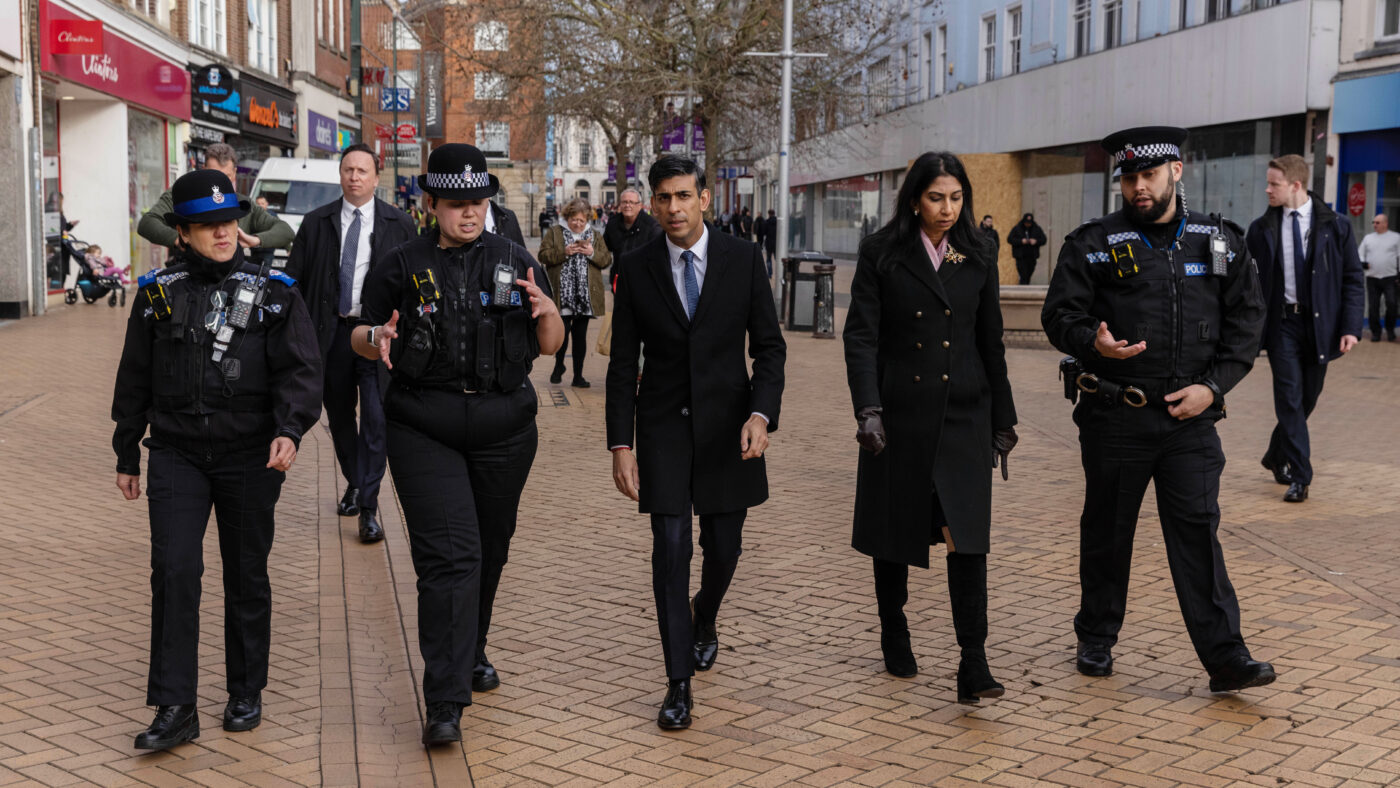There’s little doubt that the authorities in this country have repeatedly bungled investigations into child sexual abuse. So today’s announcement from the Prime Minister and Home Secretary of a new package of measures to deal with this national outrage are more than welcome – even if many will wish the Government had done more, sooner.
Under the new proposals specialist officers will help police forces with investigations, and a new taskforce will provide ‘crucial support’ on investigations. The PM has also pledged that being the ringleader of a grooming gang will be seen as an aggravating factor when it comes to sentencing, meaning the most prominent offenders will face longer jail terms.
There’s little doubt about the scale of the problem. The horrifying scandals in Rotherham, Rochdale and Telford are now all too well known to the public. Last October the final report from the Independent Inquiry into Child Sexual Abuse (IICSA) described the scale of abuse in this country as ‘horrific and deeply disturbing’. The same report that recommended that failing to report such abuse be made a criminal offence, a suggestion the Government has now put out to consultation.
Much of the media discourse, however, has focused on whether or not political correctness is to blame for failing to prosecute abusers. Rishi Sunak said today that ‘political correctness has stopped us from weeding out vile criminals’, while Suella Braverman pointed to a particular problem among men of Pakistani heritage. Providing data on the ethnicity of offenders is part of the package announced today, aimed at ensuring abusers cannot ‘hide behind cultural sensitivities’.
Cue howls of predictable outrage from Labour and the liberal left commentariat that this is ‘dog whistle’ politics and that, in fact, the majority of child abusers are actually white.
Leaving aside that talking plainly about a problem is the opposite of a ‘dog whistle’, both sides have a point. The majority of child abusers are white, which is hardly surprising in a country where more than 80% of the population is white. But it’s also the case – according to a 2020 Home Office report – that there has been an ‘over-representation of Asian and Black offenders in group-based CSE’ (emphasis mine).
And there’s no doubt in my mind that in cases involving British-Pakistani men and white working-class girls, the authorities have too often been paralysed by nervousness about race. Not only have some of the most vulnerable people in society been sacrificed on the altar of political correctness, but far from dampening tensions, officials have actually ended up doing untold damage to race relations in the process.
That said, we should beware making this into too reductive a debate.
For one thing it is worth noting that white girls, while undoubtedly disproportionately targeted, are not the only victims of CSE. Of the 5,862 victims and survivors who took part of the Truth Project as part of the IICSA, almost a third were boys and 10% had a non-white racial background.
Another important blind spot in so much of the media coverage of CSE is the degree to which abuse is happening within certain communities. This is crucial, as a simplistic ‘Pakistani v White’ framing risks overlooking the suffering of many other victims of such abuse.
Indeed, it was explicitly flagged in Alexis Jay’s independent report on child sexual exploitation in Rotherham from 1997-2013. Representatives of women’s groups in the South Yorkshire town were ‘frustrated’ that the framing of CSE was ‘often based on an assumption that similar abuse did not take place in their own community and therefore concentrated mainly on young white girls’.
Any effective response to CSE also needs to look at Britain’s most intensely segregated ‘closed communities’. Back in 2021 the Centre for Social Justice called for a much more comprehensive approach. Its ‘Unsafe Children’ report noted that:
‘Special attention should be paid to organisations focused on supporting men and boys and Black and minoritised victims/survivors given the indication that there is a paucity of ISVAs [Independent Sexual Violence Advisers] currently available from those groups.’
None of this is to take away from the horrific violence and abuse suffered by thousands of white-British girls. But it does mean the Government cannot simply treat the grooming gangs crisis as some kind of culture war issue, or one that can be seen wholly through the prism of race.
Irrespective of ethnicity, there are characteristics which make a young person more vulnerable to group-based CSE. For instance, the IICSA report states that children living with disabilities and placed in the care system are at far greater risk of sexual exploitation. While clearly set out in the 2010 Equality Act, disability has almost become the ‘forgotten’ protected characteristic in an era obsessed with race and ethnicity. On top of that, there remain various forms of accommodation housing vulnerable children which are under-supervised and under-regulated – that must change.
Equally important is that when perpetrators are caught they are swiftly brought to justice. At the moment that is happening far, far too slowly. As the Shadow Home Secretary pointed out today, only 11% of child abuse cases currently end with a charge, well down from the figure of 32% seven years ago. No amount of stern statements will compensate for a justice system that is failing to execute its basic functions in a timely manner.
So while I welcome the measures announced by the Government today, and the unstinting attitude of senior ministers towards this scourge, this is an issue that demands real solutions, not just punchy rhetoric.
Click here to subscribe to our daily briefing – the best pieces from CapX and across the web.
CapX depends on the generosity of its readers. If you value what we do, please consider making a donation.


